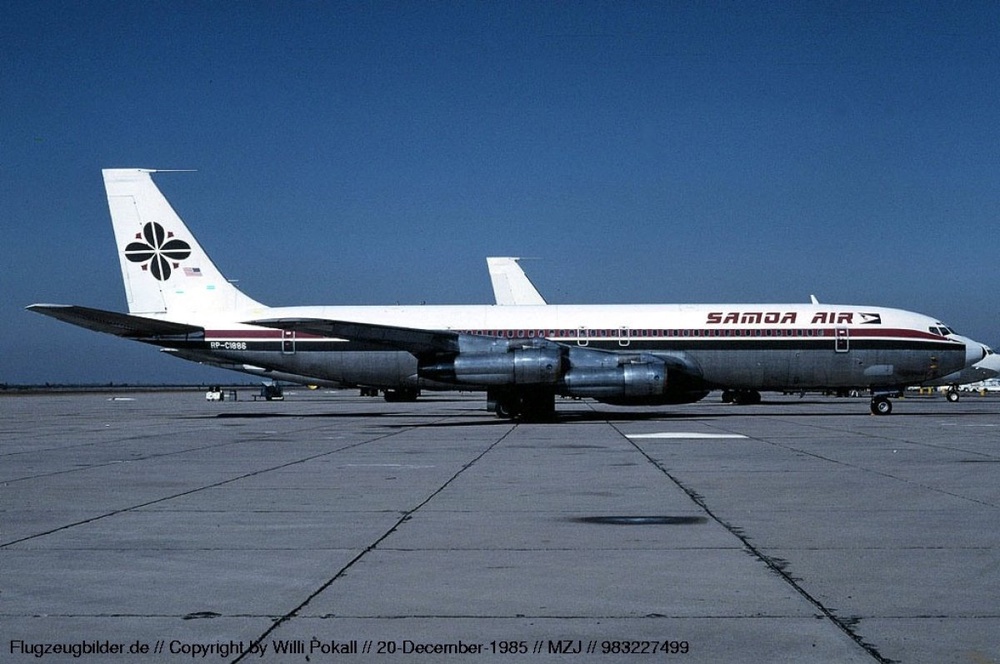
The head of a tiny Pacific airline that pioneered a fare system based on passengers' weight said Wednesday the move had been so successful the carrier is upgrading its fleet, AFP reports. Samoa Air introduced its world-first system late last year, when it began charging passengers fares based on how much they weigh, rather than a set price for each seat. Chief executive Chris Langton said the 1.34 tala (57.5 US cents) per kilogram (2.2 pounds) charge had proved popular over the first 12 months as it meant cheaper fares for most passengers. "People do the sums, that's their first interest" he told the Australian Broadcasting Corporation. "They compare what they would pay on a pay-by-weight system and just do basic arithmetic." The World Health Organisation says Samoa has one of the world's highest rates of obesity, leading to soaring levels of weight-related coronary disease, diabetes and strokes in the Pacific island nation. "We find that generally speaking if you look at any operation anywhere between any destination worldwide, a person who comes in at about 120 kilos (265 pounds) or less will always be better off to travel on a pay-by-weight system," Langton said. He said the airline was in the process of adding to its three-aircraft fleet a new Cessna 208, which would be configured to ensure larger passengers who pay high fares are given more space. "That way we can provide for people who are paying more because they are larger, obviously in the Pacific that is the case," he said. "Everybody gets what they're paying for." He said larger airlines were considering similar schemes. "The interest worldwide hasn't diminished at all. There's massive discussion going on about how pay-by-weight can be transferred to larger airplanes," he said.





The head of a tiny Pacific airline that pioneered a fare system based on passengers' weight said Wednesday the move had been so successful the carrier is upgrading its fleet, AFP reports.
Samoa Air introduced its world-first system late last year, when it began charging passengers fares based on how much they weigh, rather than a set price for each seat.
Chief executive Chris Langton said the 1.34 tala (57.5 US cents) per kilogram (2.2 pounds) charge had proved popular over the first 12 months as it meant cheaper fares for most passengers.
"People do the sums, that's their first interest" he told the Australian Broadcasting Corporation.
"They compare what they would pay on a pay-by-weight system and just do basic arithmetic."
The World Health Organisation says Samoa has one of the world's highest rates of obesity, leading to soaring levels of weight-related coronary disease, diabetes and strokes in the Pacific island nation.
"We find that generally speaking if you look at any operation anywhere between any destination worldwide, a person who comes in at about 120 kilos (265 pounds) or less will always be better off to travel on a pay-by-weight system," Langton said.
He said the airline was in the process of adding to its three-aircraft fleet a new Cessna 208, which would be configured to ensure larger passengers who pay high fares are given more space.
"That way we can provide for people who are paying more because they are larger, obviously in the Pacific that is the case," he said. "Everybody gets what they're paying for."
He said larger airlines were considering similar schemes.
"The interest worldwide hasn't diminished at all. There's massive discussion going on about how pay-by-weight can be transferred to larger airplanes," he said.

 +7 (777) 001 44 99
+7 (777) 001 44 99



 Қазақша
Қазақша Русский
Русский English
English














































